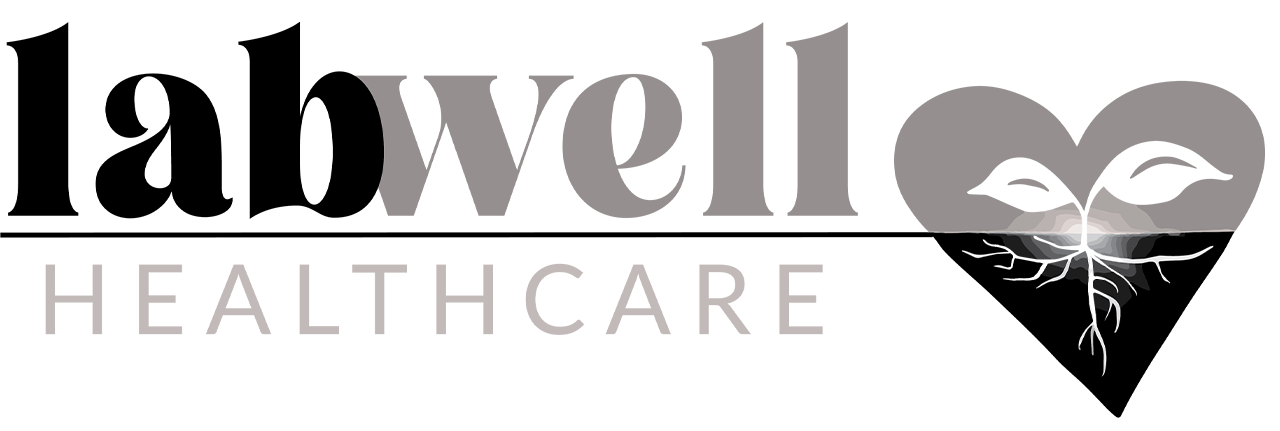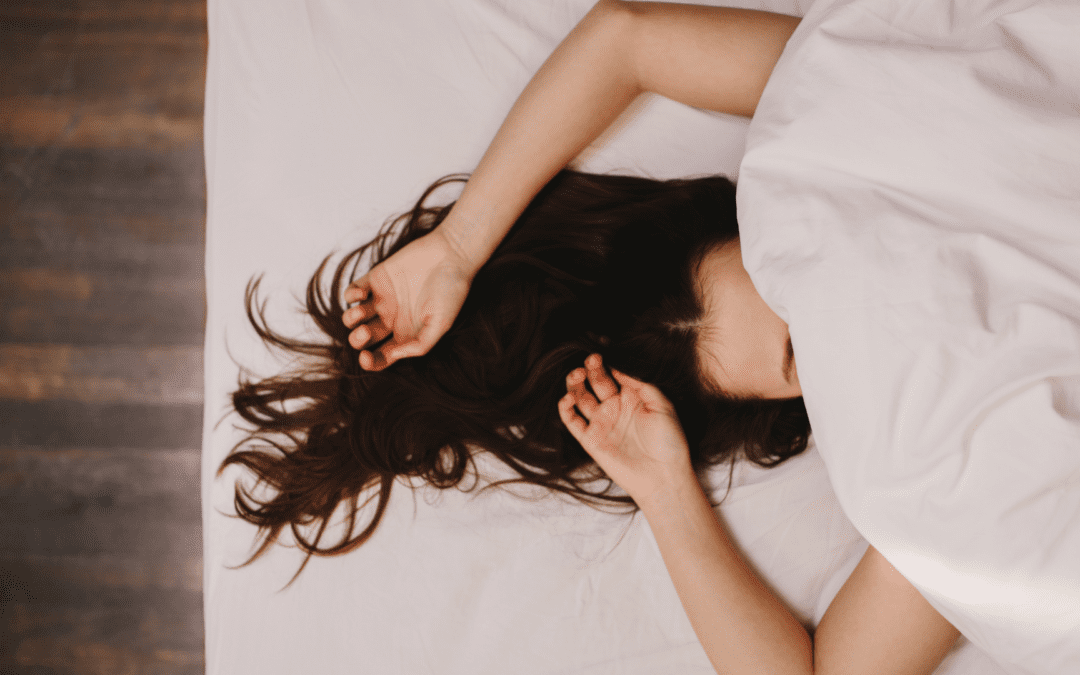Does a coveted good night’s sleep sometimes feel like an elusive dream? Tossing and turning through the night, the frustration of poor sleep is an all-too-familiar feeling for many women I see. It’s not just about the grogginess or the struggle to stay awake the next day; it’s the deeper, ongoing battle that can take a toll on both mental and physical health. Who can function on no sleep?! So what can you do? Consider how hormone imbalances might be playing a part!
Here are my top 10 tips for getting that good sleep – keeping your hormones in mind.
Begin and end each day with three rounds of box breathing
Manage stress and intentionally regulate your nervous system with polyvagal toning exercises and/or breathwork within an hour of going to bed. With your right hand on your heart and your left hand on your belly – inhale for four counts – hold for four counts – exhale for eight counts. Repeat two more times. Beginning and ending the day with engaging the vagus nerve and your parasympathetic nervous system will help you regulate your nervous and endocrine (hormone) systems.
Create a nightly wind-down routine
One hour before bed I take my stress management supplements, make a cup of my turmeric tea and color in my coloring book. This has improved the quality of my sleep ten-fold. I call it my nightly wind-down routine. This aids in falling asleep by signaling to my brain that it’s time to shift from the day’s activities to rest, effectively reducing my stress and anxiety levels which inhibit sleep. By engaging in relaxing activities and minimizing exposure to stimulating screens and environments, my body begins to activate its natural relaxation responses, easing into a state conducive to sleep. This regular pre-sleep ritual also reinforces my body’s internal clock or circadian rhythm, improving my overall sleep quality and making it easier to fall asleep consistently each night.
STOP eating like a bird all day (and then having a big meal for dinner)
In order to have good quality sleep you need stable blood sugar. So many of the patients that begin working with me “backload” their kCals because they are either too stressed all day and don’t have an appetite, too busy and forget to eat, or are trying to cut kCals and don’t eat enough protein + fat + fiber consistently to keep their blood sugar stable.
When blood sugar levels drop too low (hypoglycemia), it can trigger the release of hormones such as adrenaline and cortisol, which are designed to increase blood sugar but also stimulate the body, making it harder to fall asleep or causing you to wake up during the night. On the other hand, maintaining stable blood sugar levels through balanced meals and snacks helps prevent these disruptive hormonal spikes, promoting a smoother transition to sleep and improving your quality of rest.
STOP going to bed at different times every night and allowing yourself to scroll
Blue light emitted from your device is not only stimulating, which signals the adrenal glands to produce your stress hormone cortisol, but social media itself is not an effective way to “wind down” to support the quality of your sleep and your circadian rhythm. Implement your own wind down routine! Plus, going to bed at the same time each night helps regulate your body’s internal clock. Can’t sleep? Stop scrolling!
Get outside first thing in the morning
My circadian rhythm becomes “off” and my sleep suffers when I don’t get outside. This makes sense because in a 2020 study, the group that did not get daily sun exposure needed to supplement with Vitamin D for better sleep quality when compared to the group who got at least thirty minutes of daily sun (PMID: 32144371). I downloaded the Dminder app to track my conversion of Vitamin D from the sun in conjunction with my Vitamin D supplementation. I find this app fascinating and it’s free!
Don’t forget that Vitamin D is a hormone! And we not only need adequate levels to sleep well but also to produce adequate levels of other hormones. Women in my practice typically do well when their Vitamin D is between 30 and 50 ng/mL. I recommend checking your Vitamin D (simple serum test) four times/year and twice/year (end of summer and end of winter) at the very least.
Don’t drink alcohol or caffeine late in the day
Okay I feel like this should be a no-brainer but it’s not! Caffeine is a stimulant, right? It fires up your central nervous system, making you feel more awake and alert. That’s great for the morning rush or a mid-afternoon slump, but not so much when you’re trying to wind down. The thing is, caffeine can linger in your body for hours — typically, it takes about 5 to 6 hours for just half of the caffeine you consumed to be eliminated from your body. So, if you’re sipping on coffee or anything caffeinated late afternoon or evening, it’s still kicking around in your system come bedtime, keeping your brain on high alert when you’re trying to power down.
Minimize alcohol consumption
Alcohol might help you fall asleep faster, it’s true. But, as it’s metabolized through the night, it disrupts your sleep cycle, particularly the REM stage, which is needed for restorative sleep. So while it can help you fall asleep, it actually prohibits that deep sleep you actually need later in the night.
Wear blue light blocking glasses before bed
Put on a pair of “junk-light-blocking glasses” when the sun sets and wear them until you go to bed. These things will help filter out blue light from screens and artificial lighting (your tv, phone, computer, etc). Why is blue light bad? It suppresses the production of the hormone melatonin. Melatonin helps to make you feel sleepy. By wearing these glasses, you reduce your exposure to blue light, thereby helping your body ramp up melatonin production at the right time, making it easier to fall asleep. *FYI: My current faves are the “nightfall aviators” from Block Blue Light.
Take Reacted Magnesium in the evening
Take Reacted Magnesium to support circadian rhythm and help your goal of prioritizing sleep because it has:
- Magnesium Malate – great for muscle aches, pains and Fibromyalgia
- Magnesium Citrate – it preserves the gut and relieves constipation
- Magnesium Glycinate – this calming form of magnesium is great for improving sleep, and reducing anxiety and depression
Reacted Magnesium is available in my dispensary from StanStore.
Take a 10-15 min minute walk after your largest meal
Whatever is your biggest meal of the day, take a walk after! I usually sleep better after eating a light dinner, but in the summer since it stays lighter longer I can sneak out for a walk in the evenings. Walking is going to improve glucose utilization and help you reverse insulin resistance. Insulin resistance can make it harder to fall asleep due to its impact on blood sugar levels and the body’s hormonal balance. When the body becomes resistant to insulin, it struggles to efficiently use glucose for energy, leading to higher blood sugar levels. This imbalance can cause fluctuations in energy and mood, as well as trigger the release of stress hormones like cortisol, which can increase alertness and make it difficult to relax and fall asleep.
I hope you incorporate one or all of these tips to help you get a better night of sleep!
Don’t forget to explore more of my blog posts and reach out if you have any questions.
The information provided in this blog post is for informational purposes only. The information is a result of years of practice and experience by Dr. Francesca LeBlanc. However, this information is NOT intended as a substitute for the advice provided by your physician. Do not use the information provided in this post for diagnosing or treating a health problem or disease, or prescribing medication or other treatment. Always speak with your physician or other healthcare professional before taking any medication or nutritional, herbal or homeopathic supplement, or using any treatment for a health problem. Please, do not disregard professional medical advice or delay in seeking professional advice because of something you have read on this website.


Recent Comments